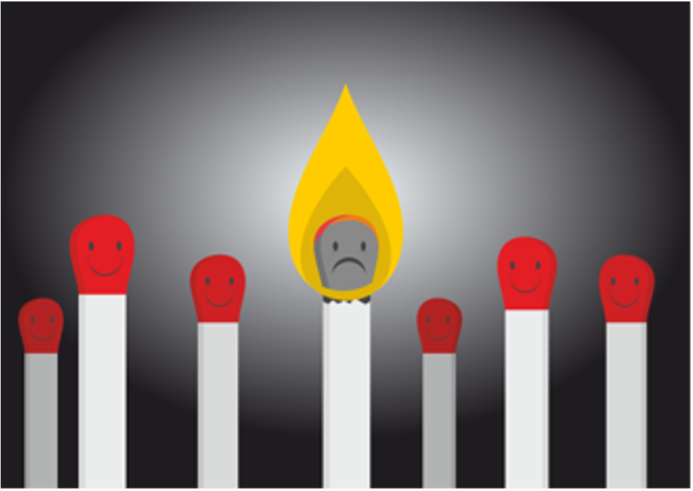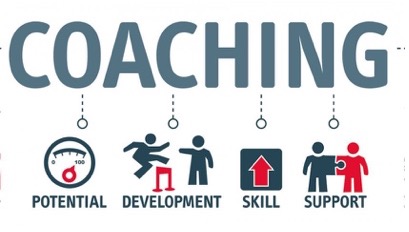Welcome to the CPR Blog
Your destination for original articles and important information about upcoming CPR events.
Coaching for Peer Specialists
April 13, 2023
by Sally Rogers and Lyn Legere
The role of peer specialists in behavioral health settings has grown dramatically in the last couple of decades. But, as a relatively new addition to the workforce, it is experiencing “growing pains”. Common experiences relayed by peer support workers include a lack of clarity about how their role fits into the mental health workplace and confusion about what their work tasks should and should not be. For some behavioral healthcare workers, research suggests that this results in stress, distress and burnout, all of which have worsened because of the pandemic (Edú-Valsania, Laguía, & Moriano, 2022; Sklar, Ehrhart, & Aarons, 2021).

The Center for Psychiatric Rehabilitation has a long history of collaborating with peer specialists in a variety of ways. In this case, we wanted to support peer workers and were troubled by the usual approaches. We often saw solutions suggesting that the peer worker needed therapeutic intervention or that the job needed to be redesigned to lessen the stress. We found both of these approaches to be objectionable, as they merely reinforced the idea of pathology on the part of the peer worker rather than considering the work setting issues related to integrating a new workforce.
Looking at the situation from a workforce perspective, we decided to address this problem with a somewhat novel approach: that of coaching. We know that coaching is an effective tool and has now been applied not only to the sports context, but to lifestyles, wellness, and recovery (Sforzo, et al., 2018; Grover & Furnham, 2016). Most relevant, it has proliferated in work settings, including Executive Coaching. We wondered if Executive Coaching for peer specialists, which keeps the focus squarely on the workplace, might be an effective approach to address work related stressors.

Coaching shares many values of peer support, which makes it very attractive. Some of the advantages of coaching support is that it focuses on establishing a good working relationship and mutual respect, on co-developing goals, and on bringing self-directed strategies to bear to support the person as they strive to reach their goals.
However, we wanted to differentiate coaching for peer workers from typical “Executive Coaching” in that we did not want to have any affiliation with the person’s employer. Coachees were free to tell their supervisors about the coaching, should they choose. At the same time, we believed that having a firewall between the employer and the coach gave the peer worker a greater sense of safety to fully share their work situation without fear of reprisal.
In 2019, the Center submitted a proposal to develop and research this virtual coaching intervention for peer support workers to the National Institute on Disability and Rehabilitation Research, which was funded.
To develop the coaching program, we consulted experts in both fields: peer support practice and coaching. We got input from a small group of peer specialists/advocates and also from the Harvard Institute on Coaching (to learn more about coaching from this institute, visit: https://www.instituteofcoaching.org/). Since the coaching would be focused on work issues, it was clear to us that the coaches must have experience as a peer support worker as well as coaching skills. Lyn Legere, herself certified as a life coach and a peer specialist, took the lead on the development of the coaching guide, working with Zlatka Russinova, Director of Research at the Center, and the input of consultants.
The peer worker coaching manual consists of several sections providing guidance to coaches. One important section specific to this coaching intervention is “Coaching vs. Peer Support.” The coach’s background in peer support provides knowledge needed to understand challenges that coachees may be experiencing. Here, however, their role is that of a coach. We were very fortunate to have hired two highly experienced peer specialists who were trained to be coaches for this study and who have done an exemplary job.
Another important section of the manual is what we called the Topical Guide. This section focuses on areas that we know can be particularly challenging in peer work, including:
· Role Overload
· Role Confusion/Ambiguity
· Work/Life Imbalance
· Stigma and Role Devaluation in the Workplace
· Dealing with Conflict in the Workplace
· Training Gaps or Job Mismatch
· It is What it Is: Dealing with Issues Beyond your Control
· Wellness Tools for Work
Each section has information on the topic as well as tips, strategies and worksheets that can be used in whatever ways seems useful to the coachee.

Of course, funded research has to see how effective any newly developed intervention is. Using surveys, we are trying to learn if the coaching had an effect for people in areas such as role clarity, role confusion, burnout, job satisfaction, organizational climate, job stressors, and turnover intention. Participants complete the survey measures when they first enroll in coaching, and then at the 4, 6 and 9-months mark.
Since this study was developed as a randomized trial, only half of the people we enrolled will get the full coaching (designed to be up to 16 weeks long) and the other half are offered one informational session. This will allow us to make good comparisons about the effect of the coaching. Because the project is ongoing, we do not have this data compiled yet, but hope to have some initial outcomes by the endo of 2023.
In the meantime, we have also been conducting qualitative interviews with folks who have received coaching. From these interviews, we are learning of the value that participants place on having a knowledgeable peer specialist/coach to discuss their workplace difficulties with, someone who can provide perspective, context, and understanding. Here are some of the things the coachees said:
• “Coaching helped humanize my work”
• “My coach was a lifeline during a difficult time for me personally”
• “I could trust my coach when I hadn’t trusted other providers”
• “Coaching was terrific”
• “It was lifechanging for me…I learned about myself as a peer and it helped me in my life”
• “Personal growth and development—coaching helped me be the best me that I could be and bring that to work’’
• “They listened…”
• “Overall, for me, what feels the most helpful, is knowing that when Sunday at 1 comes, there was somebody who gets it, who gets what it’s like to do this work, who gets what it means to have a mental health condition—that alone has been helpful—knowing this carried me through each week”
For those interested in learning more about the work of peer specialists, please visit the NAPS website: https://www.peersupportworks.org/
The Substance Abuse and Mental Health Services Administration also has information about peer specialists: their role and their competencies. https://www.samhsa.gov/brss-tacs/recovery-support-tools/peers; https://www.samhsa.gov/brss-tacs/recovery-support-tools/peers/core-competencies-peer-workers
If you want additional information about this project, please contact E. Sally Rogers, Project Director at erogers@bu.edu or Lyn Legere, Senior Training Associate at lynleg@bu.edu.
Citations:
Edú-Valsania, S., Laguía, A., & Moriano, J. A. (2022). Burnout: A review of theory and measurement. International journal of environmental research and public health, 19(3), 1780.
Grover, S., & Furnham, A. (2016). Coaching as a developmental intervention in organisations: A systematic review of its effectiveness and the mechanisms underlying it. PloS One, 11(7). doi:10.1371/journal.pone.0159137
Sklar, M., Ehrhart, M. G., & Aarons, G. A. (2021). COVID-related work changes, burnout, and turnover intentions in mental health providers: A moderated mediation analysis. Psychiatric Rehabilitation Journal, 44(3), 219.
Sforzo, G. A., Kaye, M. P., Todorova, I., Harenberg, S., Costello, K., Cobus-Kuo, L., . . . Moore, M. (2018). Compendium of the Health and Wellness Coaching Literature. American Journal of Lifestyle Medicine, 12(6), 436-447. doi:10.1177/1559827617708562
Notice: The contents of this post were developed under a grant from the National Institute on Disability, Independent Living, and Rehabilitation Research (NIDILRR grant number 90RTEM0004). NIDILRR is a Center within the Administration for Community Living (ACL), Department of Health and Human Services (HHS). The contents of this post do not necessarily represent the policy of NIDILRR, ACL, or HHS, and you should not assume endorsement by the Federal Government.

I feel there is a great lack of coaching training out here for peer specialists. The state of Ohio requires 2 hours for recertification, but FINDING that two hours is dang near impossible! This article is the first I’ve seen anything about real coaching… I’m still looking for another hour to satisfy my recert !